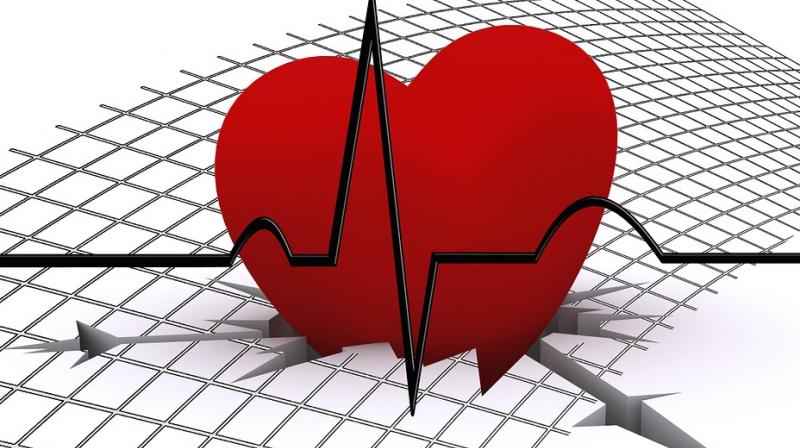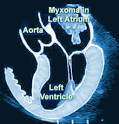Many chemotherapy regimens and radiation can lead to cardiovascular health problems, including increased risk of cardiac dysfunction, heart failure, arrhythmias, valvular heart disease, accelerated atherosclerosis and pericardial disease
The simple fact is, chemo-induced heart damage is real. A growing number of chemo regimens have been shown to damage the cancer survivors heart sometime years, even decades after treatment.
You have been diagnosed with cancer. Your oncologist has recommended chemotherapy. You are familiar with the usual side effects of chemotherapy such as hair loss, nausea, fatigue, etc. You assume that if there was a likelihood of chemo-induced heart damage then your oncologist would tell you.

And certainly if there was anything you could do to prevent a serious side effect such as heart damage your oncologist would tell you.
And you would be wrong. The article linked and excerpted below is saying two basic things for you to consider.
- most hospitals don’t teach doctors about chemotherapy-induced heart damage.
- “also cancer treatments can lead to cardiovascular health problems, including increased risk of cardiac dysfunction, heart failure, arrhythmias, valvular heart disease, accelerated atherosclerosis and pericardial disease…”
More importantly, there are a host of evidence-based therapies that have shown the ability to either prevent chemo-induced heart damage or help you manage it long after your chemotherapy is over.
I didn’t know much about this issue until I became a chronic atrial fibrillation survivor. Once I began researching the issue I decided that
- I did well living with no A-Fib until 15 years after having the chemo that probably caused my chronic A-Fib
- I wish that I had taken CoQ10 during my Adiamycin (anthracycline) therapy…
I am both a long-term cancer survivor and cancer coach. If you would like to learn more about evidence-based therapies to reduce or eliminate the risk of chemotherapy or radiation-induced collateral damage, scroll down the page, post a question or comment and I will reply ASAP.
Thank you,
David Emerson
- Cancer Survivor
- Cancer Coach
- Director PeopleBeatingCancer
Recommended Reading:
The PeopleBeatingCancer Side Effects Program
“Summary- The impact of cancer treatments on cardiovascular health is an important consideration when treating cancer patients, but many hospital training programs have no formal training or services in cardio-oncology and a lack of national guidelines and funding are frequent barriers to establishing such programs, according to an American nationwide survey….
Studies have shown that many cancers and heart disease are linked through common risk factors and prevalence in the same age population. Also cancer treatments can lead to cardiovascular health problems, including increased risk of cardiac dysfunction, heart failure, arrhythmias, valvular heart disease, accelerated atherosclerosis and pericardial disease….
However,
- only 35 percent of centers surveyed included cardio-oncology services in their pre-operative consultation services managed by general cardiology, and
- only 27 percent of centers had an established, specialized cardio-oncology service with multiple clinicians.
- Sixteen percent had a single cardiologist with expertise in treating cancer patients, and 12 percent had no cardio-oncology services but planned to add them within a year.
But the need is there. A significant number of those surveyed reported they did not feel confident in dealing with cardiovascular care specific to cancer patients and gave themselves only an average rating when asked about their level of understanding of the impact of holding or stopping cancer treatments on cancer outcomes…”
“Valvular heart diseases (VHD) may be observed in patients with cancer for several reasons, including preexisting valve lesions, radiotherapy, infective endocarditis, and secondary to the left ventricle dysfunction. The incidence of VHD is especially in younger survivors treated with thoracic radiation therapy for certain malignancies, such as Hodgkin’s lymphoma and breast cancer.
The mechanism of radiation-induced damage to heart valves is not clear and includes diffuse fibrocalcific thickening of the valve. VHD is commonly diagnosed after a long latent period, in the context of clinical symptoms, or suspected on the basis of a new murmur.
The evaluation includes identification of anatomical valve abnormalities, valve dysfunction, and assessing the functional consequences of valve dysfunction on the ventricles.
Echocardiography is the optimal imaging technique for diagnostic and therapeutic management. Cardiovascular magnetic resonance and computed tomography (CT) may be used to assess the severity of VHD, but cardiac CT is mainly useful for detecting extensive calcifications of the ascending aorta.
Patients exposed to mediastinal radiotherapy and minimal valve dysfunction require follow-up of 2–3 years, with moderate valve disease yearly, with severe, should be assessed for valve surgery.
“Preclinical and clinical studies suggest that anthracycline-induced cardiotoxicity can be prevented by administering coenzyme Q10 during cancer chemotherapy that includes drugs such as doxorubicin and daunorubicin. Studies further suggest that coenzyme Q10 does not interfere with the antineoplastic action of anthracyclines and might even enhance their anticancer effects.
Preventing cardiotoxicity might allow for escalation of the anthracycline dose, which would further enhance the anticancer effects. Based on clinical investigation, although limited, a cumulative dose of doxorubicin of up to 900 mg/m2, and possibly higher, can be administered safely during chemotherapy as long as coenzyme Q10 is administered concurrently.
The etiology of the dose-limiting cardiomyopathy that is induced by anthracyclines can be explained by irreversible damage to heart cell mitochondria, which differ from mitochondria of other cells in that they possess a unique enzyme on the inner mitochondrial membrane. This enzyme reduces anthracyclines to their semiquinones, resulting in severe oxidative stress, disruption of mitochondrial energetics, and irreversible damage to mitochondrial DNA.
Damage to mitochondrial DNA blocks the regenerative capability of the organelle and ultimately leads to apoptosis or necrosis of myocytes. Coenzyme Q10, an essential component of the electron transport system and a potent intracellular antioxidant, appears to prevent damage to the mitochondria of the heart, thus preventing the development of anthracycline-induced cardiomyopathy…”




